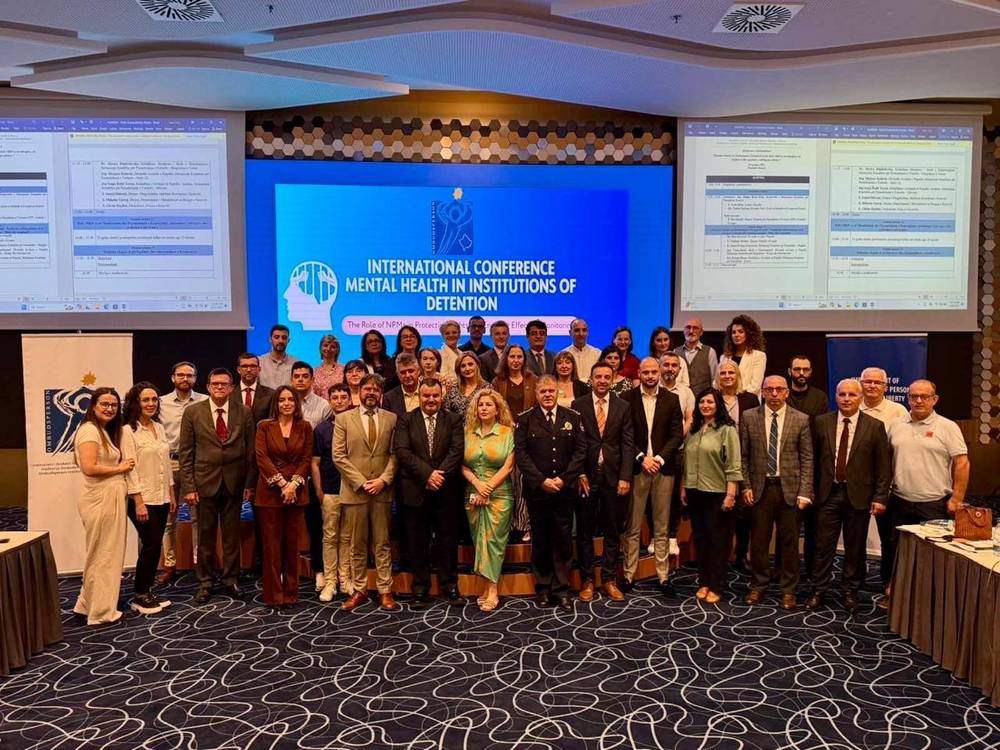The United Nations General Assembly declared 26 June as the International Day in Support of Victims of Torture to express solidarity with all those who have been victims of this grave violation of human rights. Torture is recognised in international law as one of the worst acts, aimed at destroying the personality and dignity of the victim. The aim of the day is to raise awareness of the zero tolerance of torture and all forms of inhuman treatment and to remind people of the importance of prevention, especially in institutions where people have limited freedom of movement or are under state control.
An important role in this area was also entrusted to the Human Rights Ombudsman of the Republic of Slovenia (Ombudsman) in 2006 with the ratification of the Optional Protocol to the Convention against Torture and Other Cruel, Inhuman or Degrading Treatment or Punishment. The Ombudsman, together with selected non-governmental organisations, also carries out important tasks and powers of the National Preventive Mechanism (NPM). The Ombudsman is thus part of a generally applicable system under the auspices of the United Nations, which implements an (additional) mechanism for the prevention of torture and other forms of ill-treatment of persons deprived of their liberty at the international and national levels. It carries out regular and unannounced visits to institutions, thematic inspections (e.g. in relation to overcrowding in secure wards), and in doing so cooperates with non-governmental organisations and includes experts from the field of health (psychiatrists). It recommends, among other things, that institutions improve living and working conditions, ensure greater security and better-quality health care, more consistent compliance with legal regulations, and respect for human personality and dignity during deprivation of liberty.
One way to prevent torture is to take care of the mental health of the population. This topic is currently being given special attention by participants in an international conference entitled Mental Health in Detention Facilities: The Role of National Preventive Mechanisms in Protecting Rights and Ensuring Effective Supervision. The event is taking place in Pristina, Kosovo, and is organised by the Kosovo Ombudsman Institution with the support of various international partners.
The conference is dedicated to the challenges and solutions in the field of protecting the mental health of persons deprived of their liberty, in particular in psychiatric institutions, prisons, and other forms of institutional care. The main purpose is to highlight the importance of national preventive mechanisms (NPMs), as envisaged in the Optional Protocol to the Convention against Torture (OPCAT), in preventing torture and other inhuman or degrading treatment. At the same time, the conference is also an opportunity to exchange international practices and strengthen cooperation between institutions, as well as to formulate recommendations for improving the monitoring and implementation of human rights.
During the first plenary session, the Ombudsman's representative, advisor Sonja Božič Testen, presented the experiences of the Slovenian NPM in the field of mental health care in detention facilities. She emphasised, among other things, that in Slovenia there are still inconsistencies between legal provisions and practice, especially in the use of special protective measures, restriction of liberty solely on the basis of mental disorder, and the lack of appropriate treatment of children with the most severe behavioural disorders.
Institutions in Slovenia which are supervised by the NPM and where freedom of movement is limited are faced with overcrowding, insufficient staff, and in some cases, inadequate use of protective measures. There is a pressing shortage of child psychiatrists, and the accommodation of children and adolescents with severe behavioural disorders is also inadequate, she stressed, among other things.
She also presented some examples of good practice, such as the opening of a forensic department in 2012, a department for child and adolescent psychiatry in 2019, and a special department for children with the most severe forms of emotional and behavioural disorders in Dornava in 2021. Examples of good practice are also smaller residential units, such as Hiška at CUDV Draga, where small groups of adolescents with severe forms of emotional and behavioural disorders live in an environment that encourages learning and responsibility.
To achieve change, the credibility of the Ombudsman is necessary, which Slovenia strengthens through transparent reporting, cooperation with non-governmental organisations, experts and foreign institutions, education of members, and constant realisation of recommendations based on concrete findings.
By participating in this international conference, the Human Rights Ombudsman of the Republic of Slovenia emphasises its commitment to zero tolerance for torture and actively participates in strengthening international mechanisms for the protection of the rights of the most vulnerable groups. The emphases from Slovenia contribute to the common goal: to create a humane, safe, and humane system of care for individuals in institutions where their freedom is restricted

![[Translate to English:] Udeleženci srečanja v Prištini](/fileadmin/_processed_/d/1/csm_Pristina_DPM_Bozic_Testen_8006c17d94.jpg)
![[Translate to English:] Omizje prezentatorjev](/fileadmin/_processed_/8/8/csm_Pristina_DPM_Bozic_Testen_2_d756117312.jpg)